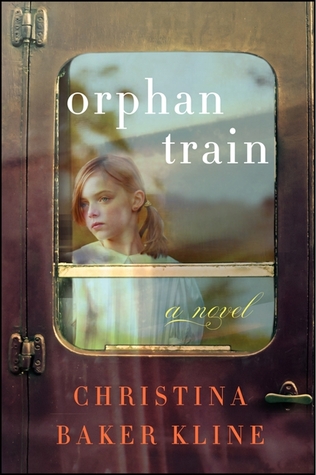I remember when Orphan Train first came out. It was ALL THE BUZZ at the bookstore.
We were all the more thrilled to be able to read it the next year in book club. I lead the book club and we have approx 25 members. Most everyone loved the book.
You can imagine how thrilled I was when FLTW voted to discuss Orphan Train in June. Orphan Train is about orphaned children taken by trainloads to the midwest to be adopted by families. The hope is that these children will have had better lives with families and the families in turn will receive the children they always wanted. Naturally, things are not always as easy or as obvious as we’d like. The bit about Orphan Train that I want to discuss is: What makes a family?
Traditionally, family has been identified as one or two parents and children. Lately, though, that model has changed, which, if you think about it, is not so different than families from decades or centuries ago. If you think back to slave times, African American families were torn apart. Children were taken from their mothers and sent to work on other plantations. Usually the child wound up being taken in by another woman, possibly a woman who lost her own child through a similar situation. Other times, nieces and nephews and cousins were taken in by aunts, uncles, grandchildren, etc. The family became a blending of blood, familiarity, and necessity.
As the decades and centuries passed, this blending of family members does not seem to have stopped. I can look at my own childhood family and see aunts caring for her sister’s children, and grandmothers raising her grandchildren. These blendings can make for difficulty when tracing family histories (I’ve recently become a fan of Ancestry.com) as your brother might really be your cousin and the cousin with the light eyes might actually have been adopted.
These kinds of family histories might, in earlier decades, have been a source of shame and the paperwork hidden. I think that feeling of hiding the shame of being an orphan or adopting an orphan might have happened to some of the thousands of children sent through the Orphan Train adoption process. Unfortunately, not all of the children were treated well and I wonder if families wanted to hide this fact. If this is the case, children’s records could easily get lost in the attic under years of forgotten ephemera.
Makes you think: who i in your family? Are they people you are directly related to or have you created a family by other methods?
